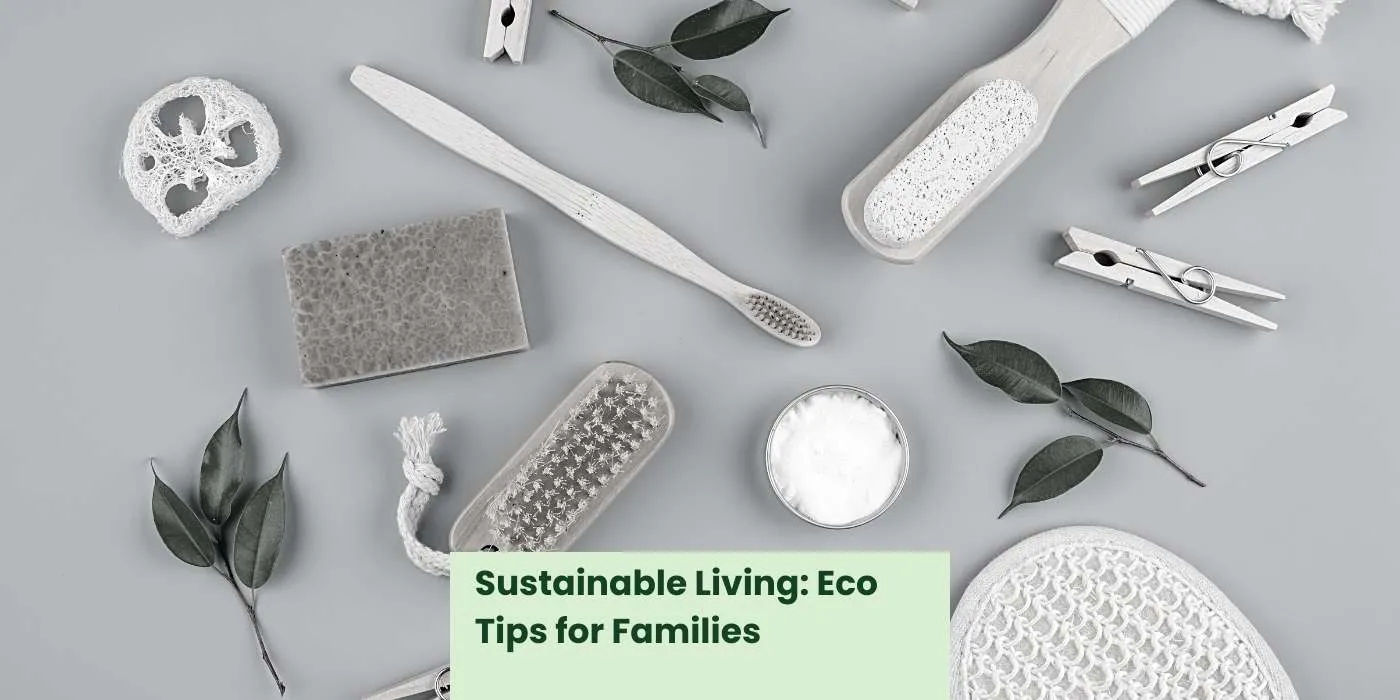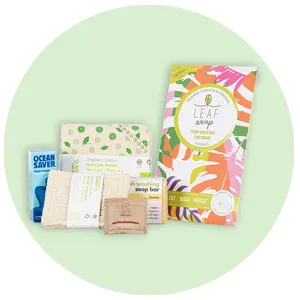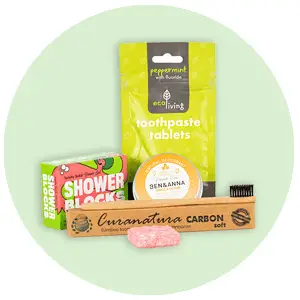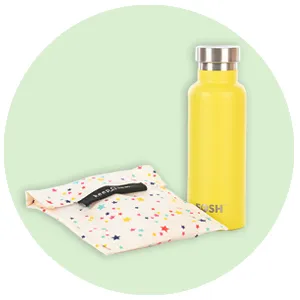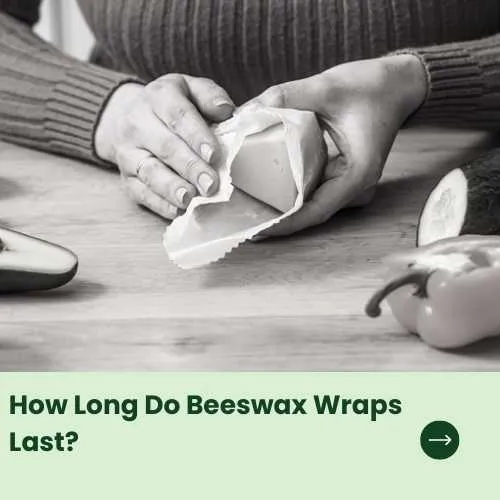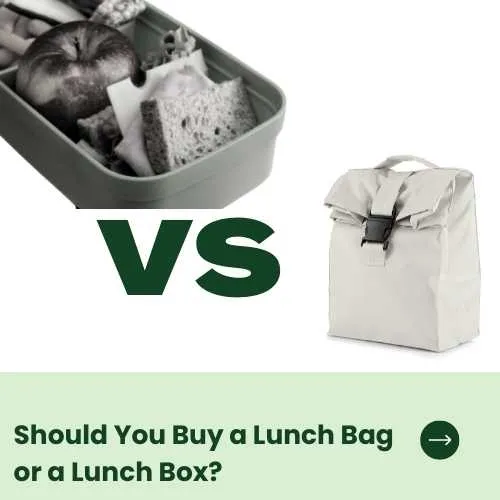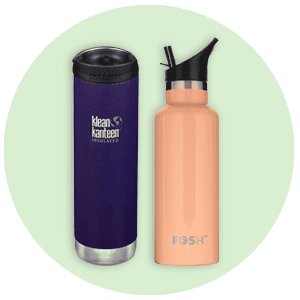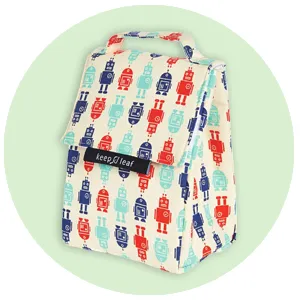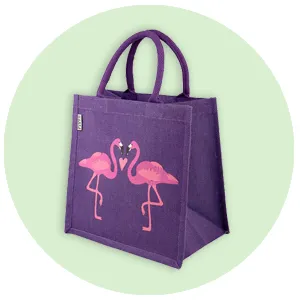Sustainability is a hot topic right now, and for good reason! It is more important than ever to be mindful of the ways in which we impact our planet. For families, living sustainably can seem like a daunting task.
But it doesn’t have to be!
If we all make small changes in our daily lives, we can collectively make a big difference. Small steps. Just think take the first small step.
In this guide, we will provide you with tips and tricks for making your home more environmentally friendly. We will also discuss some easy ways to reduce your carbon footprint.
Sustainability For Families: A Beginner’s Guide
Sustainability is an important part of protecting our environment and ensuring that future generations have access to resources. As a family, you can make small changes in your daily lives that will add up to having a large impact on the planet overall.
What is sustainability and why is it important?
Sustainability is the practice of making sure that our actions do not have negative long-term effects on the environment.
Living in a sustainable way is about reducing our impact on the environment through thoughtful consumption and responsible lifestyle choices.
Sustainability is important for many reasons, including reducing pollution and conserving natural resources.
Living in a sustainable way is the practice of caring for the environment by reducing our impact on it, both through thoughtful consumption and responsible lifestyle choices.
It involves making environmentally conscious decisions while considering economic, social, and cultural aspects in order to create a better future for all.
With climate change becoming an increasingly urgent global issue, it is more important than ever to shift our consumption habits and lifestyle choices towards a more sustainable model.
There are many reasons why sustainability is important. For one, it can help reduce pollution and conserve natural resources. Additionally, sustainable living can have a positive impact on public health.
For example, by reducing air pollution, we can reduce our exposure to harmful toxins. Sustainability is important for social and economic reasons. For instance, sustainable practices can create jobs in the green industry.
Sustainability is the practice of making sure that our actions do not have negative long-term effects on the environment. In other words, it is about living in a way that protects our planet for future generations.
Reducing your energy usage
One of the easiest ways to reduce your environmental impact is by reducing your energy usage. This can be done through simple measures such as turning off lights and unplugging appliances when not in use, or more complicated measures such as switching to energy-efficient lighting and installing solar panels.
Reducing your energy consumption will help reduce emissions from power plants and also save you money on your energy bills.
Energy efficiency can be achieved by making simple changes like switching to LED light bulbs and unplugging electronics when they are not in use, and even using more natural light.
You can also save energy (and money!) by turning down the thermostat in winter and using fans instead of air conditioners in summer.
Recycling and composting
Another great way to reduce your environmental impact is through recycling and composting.
By separating your waste and making sure that paper, plastics, glass, metals, and other recyclable materials are disposed of properly in designated bins or bags, you can help reduce the amount of waste that ends up in landfills.
Composting is also a great way to make use of organic materials such as food scraps and yard trimmings, which can then be used as fertilizer for your garden or lawn.
Eating organic foods
When it comes to sustainable living, making good food choices is key. Eating organic foods can help reduce the number of chemical pesticides and fertilizers used in conventional farming, as well as reduce the carbon footprint associated with transporting non-local produce.
Organic foods are often more nutrient-dense than their conventional counterparts, making them a healthier option for both you and the planet.
Using less water
Water is a precious resource, and we should all be mindful of how much we use it.
Simple measures such as fixing leaky faucets or taking shorter showers can help reduce your water consumption and save money on your utility bill.
Installing low-flow showerheads and utilizing rainwater barrels are also great ways to conserve water. Or if you are into gardening install a drip irrigation system. Drip irrigation systems dramatically reduce the water wasted.
Tips for going green
Going green doesn’t have to be an all-or-nothing endeavor. Start small and focus on one or two areas, such as reducing your energy usage or recycling more, and build up from there.
Making a few simple changes in your daily habits can go a long way in helping the environment.
In addition to making more sustainable choices, you can also help spread the word by talking to friends and family about the importance of environmental protection.
Eco-Friendly On The Go
It might seem hard to be sustainable when you are out and about. However, there are plenty of simple steps you can take to reduce your environmental footprint while on the go.
One tip is to carry a reusable water bottle and coffee cup with you as this will help reduce the need for single-use plastic items. You could also look into reusable straws and reusable bags if they suit your lifestyle. Buying food in bulk and using reusable containers is another way to help reduce waste.
Choosing more eco-friendly transport options such as walking, cycling or taking public transport can also help reduce your environmental impact. Additionally, you can look into carpooling with friends or colleagues if needed.
Eco-Friendly At Home
There are many ways to make have a Sustainable House. Here are some ideas:
Use less water
One way to reduce your water usage is to install low-flow fixtures, such as showerheads and faucets. You can also save water by fixing any leaks in your home.
Reduce energy consumption
You can save energy by making simple changes, such as switching to LED light bulbs and using a power strip to turn off electronics when they are not in use.
Compost
Composting is a great way to reduce food waste. You can use compost to fertilize your plants or gardens.
Shop local and secondhand
When you shop local, you support businesses in your community. And when you buy secondhand items, you are giving new life to items that would otherwise be sent to a landfill.
Be mindful of your trash
One way to reduce the amount of waste you produce is to recycle and compost as much as possible. You can also avoid using disposable items, such as paper towels and plastic water bottles.
You can break down living sustainably at home into various areas. For example, being eco-friendly in the bathroom, being eco-friendly in the kitchen with food and food storage, being sustainable in your energy and running costs or even just being sustainable with your house decoration (for example choosing natural salt lamps over plastic lamps).
How Can Families Live More Sustainably?
Sustainability is often defined as meeting the needs of the present without compromising the ability of future generations to meet their own needs. In other words, it is a way of living that considers the planet’s finite resources and seeks to use them in the most efficient, least damaging way possible.
Many people think of sustainability as something that is only important to environmentalists or “tree-huggers.” However, the truth is that sustainability is relevant to everyone, and there are many ways that families can incorporate sustainable practices into their daily lives.
One of the most important things families can do to live more sustainably is to reduce their consumption. This can be done in a number of ways, such as buying less stuff, repairing broken items instead of replacing them, and choosing quality over quantity.
In addition to reducing consumption, families can also seek out more sustainable alternatives to the products and services they use every day.
For example, instead of using disposable diapers, they could use cloth diapers that can be reused. Have you considered having a green period? Instead of using tampons and disposable menstrual pads, they could use period cups or reusable pads. The bathroom is a great place to start with going green and reducing consumption and use of single-use plastic bottles. Everything from creating plastic free shaving to switching to plastic-free hair care.

How to Reduce Waste in the Bathroom?
Making a few simple changes in the bathroom can help to reduce your plastic waste. Switch out the bottles for shampoo bars, soap bars and even shower gel bars.
The Benefits of Living a More Sustainable Lifestyle
Hey there! If you’re reading this, chances are you’re interested in ideas of sustainability– or maybe you’re just curious about what it’s all about.
Either way, simple sustainable living has plenty of benefits – for you, for the planet, and for future generations.
Here are just a few reasons why choices for sustainable living is such a great idea:
1. You’ll Save Money in the Long Run.
Sure, making some initial investments in eco-friendly products and energy-saving appliances can seem like a big expense upfront.
But trust us – over time, these things will end up saving you money on your utility bills (not to mention spare you from costly repairs down the road).
So sustainability really is pennywise in the long run!
2. You’ll Help Preserve Our Planet and Its Resources.
This one’s pretty obvious – but it bears repeating nonetheless! By reducing your reliance on fossil fuels and other non-renewable resources, you’ll be doing your part to protect our planet for future generations.
And that feels pretty good, doesn’t it?
3. You Can Live a Healthier Life by Eating Organic Food and Exercising Outdoors More Often.
When was the last time you went for a hike or ate an entire meal made of fresh veggies picked from your own garden?
If you can’t remember, then sustainable living might be just what the doctor ordered! Not only will eating organic food and spending time outside make you healthier, but it’ll also help reduce stress levels.
Sustainable living sounds pretty good so far, right?
4. You’ll Be Doing Your Part to Ensure a Brighter Future for All.
We have to admit – this is probably our favorite benefit of sustainable living. When you live sustainability, you’re not just making a commitment to preserving our planet and its resources for future generations.
You’re also setting an example for others to follow! And that’s pretty powerful stuff.
So there you have it – just a few of the many reasons why sustainable living is such a great idea! We hope this has inspired you to make some changes in your own life, however big or small.
Every little bit helps when it comes to preserving our planet!
Key Takeaway: Sustainable living has many benefits, including reducing your reliance on fossil fuels and other non-renewables, saving money, and living a healthier life.
Tips for sustainable living on a budget
One of the biggest obstacles to sustainable living is cost. Fortunately, there are many ways to live a more sustainable life on a budget. Here are some tips to get you started:
Go thrifting
Shopping secondhand can help you save money and be more sustainable at the same time. Many local thrift stores offer great deals on furniture, clothing, and other items.
Buy in bulk
Buying items such as toilet paper and cleaning supplies in bulk can help you save money and reduce packaging waste. Or even make your own cleaning suppliers, check out our top tips for eco bathroom cleaning.
Reduce food waste
Plan your meals ahead of time so that you don’t end up with excess food at the end of the week. Consider meal prepping and freezing leftovers for future use, check out our guide to eco food storage.
Reuse and repurpose items
Before throwing something out, consider if there’s a way you could reuse or repurpose it. With a little creativity, many everyday items can be reused in new ways.
Try minimalism
Minimalism can help you reduce your consumption of goods and help you focus on what truly matters. Start trying to live with fewer possessions and learn to appreciate the little things.
Sustainable living is a lifestyle that seeks to reduce our impact on the environment. There are many ways to live sustainably, such as reducing our water and energy usage, shopping local and secondhand, and composting.
By following these tips, you can start living a more sustainable life without breaking the bank. Every small step makes a difference!
How to Live Sustainably – 10 Tips for Getting Started
Here are 10 tips to get you started on your sustainable living journey:
Choose Environmentally Friendly Products When Possible
This One Is Pretty Self-Explanatory.
When given the choice between an eco-friendly product or a conventional one, go with the green option!
Not only will this help reduce your impact on the environment, but it’s often better for your health as well since many eco-friendly products are free of harmful chemicals and toxins.
But this can even be something simple like choosing tap water over bottled water. Not only does this create less waste as you are going plastic free, but also you will really reduce your carbon footprint.
But you can think a little further and try something new, like replacing toothpaste (have you heard about the huge issues with toothpaste tubes!) with toothpaste tablets, check out our full guide to sustainable dental hygiene. Or even switching over to natural deodorant or sustainable teacher gifts instead of the normal plastic filled presents?
Reduce, Reuse, Recycle
We’ve all heard this phrase before but it bears repeating! Reducing waste in general is key to sustainability since so much of what we throw away ends up in landfills where it emits methane gas (a greenhouse gas that contributes to climate change).
So instead of throwing something out, see if there’s a way you can reuse or repurpose it first. And when recycling isn’t an option, composting food scraps is another great way to reduce landfill waste while also creating nutrient-rich soil for gardening purposes.
Conserve Resources
Save energy by conserving resources like water and electricity One easy way to conserve energy at home is by making sure electronics are turned off and unplugged when not in use since they still consume power even when they’re “off.”
You can also change out the way you cook, from switching to a slow cooker or a microwave can save a lot of energy.
You can also save water by fixing any leaky faucets and opting for drought-tolerant plants in your garden.
Shop Locally
Shop locally to reduce carbon emissions from transportation.
Buying local produce cuts down on carbon emissions from transport trucks, plus supporting businesses helps keep money within the community which strengthens the local economy.
When possible, buy items that were made locally or in the same country. This helps support local farmers and artisans while reducing your carbon footprint.
Plant a garden or support farmers
If you have yard space, consider planting a garden! Or even just planting a herb planter on your windowsill can really help.
Not only will fresh fruits and vegetables taste delicious, but gardens also improve air quality and provide habitat for bees and other pollinators.
Compost Food Scraps
Composting saves money and saves waste! If you live in a country with a pay for waste scheme, simply taking out your food waste and composting them can make a huge difference.
Of course, planning meals and reduce food waste would be a great first step.
Don’t Drive Everywhere
One of the best ways to live a more sustainable life is to reduce your reliance on driving. Not only does this help to reduce your carbon footprint, but it can also save you money since you won’t be shelling out for gas or other transportation costs.
Instead, try walking or biking for short trips, taking public transportation, carpooling with friends, or simply planning errands to reduce the amount of driving you do.
If you need to drive consider an electric car or a hybrid car, modern models have come on leaps and bounds and these options are really a no brainer.
Ditch the Toxic Cleaning Products
Use green cleaning supplies or make your own!
There are plenty of simple ways to make everyday household items without harming the environment. Ready-made options are available in stores, but sometimes it’s just fun to try a DIY project.
Non-toxic soap, laundry detergent, and toothpaste are great places to start.
Create your own cleaning vinegar solution by mixing 1 cup distilled water, 1 cup vinegar, and 1 teaspoon essential oil (lemon, lavender, tea tree, eucalyptus, peppermint, or rosemary work great and add a nice smell).
Make your own
Rather than buy everything, consider making your own products. You can make everything from cleaning supplies to furniture to clothes.
When you make something yourself, you know exactly what goes into it, and can be sure that it’s more sustainable than buying an item of unknown origin and ingredients.
Additionally, making things yourself will save money in the long run as well as help minimize waste associated with packaging and shipping items.
Eat less meat
Eating meat contributes to global warming, water pollution, and land degradation.
Consider switching to a plant-based diet or reducing the amount of meat you consume. Try replacing meats with other proteins like lentils, beans, and tofu.
BONUS TIP:
Educate yourself and others about sustainability and the important role we all play in preserving our planet for future generations. Living sustainably might seem daunting at first, but once you get the hang of it, it becomes second nature.
Plus, a sustainable lifestyle often leads to a healthier and happier life, so it’s a win-win! Take small steps today to create a big difference tomorrow.
Let us know how it goes in the comments below!
Key Takeaway: We all need to do our part to help the environment by living sustainably.
Why Sustainability Is Important for the Planet (and You!)
Most people know that sustainability is important, but they may not realize just how vital it is for the planet – and for us humans too!
Here are four reasons why sustainability matters:
1. Sustainability Preserves Resources.
We all depend on natural resources like air, water, and soil to live. But these resources aren’t infinite; if we keep using them at the rate we are now, eventually they’ll run out.
Practising sustainability helps to preserve these precious resources so that future generations can enjoy them as well.
2. Sustainability Protects Ecosystems.
Ecosystems provide crucial services like pollination of crops, filtering of drinking water, and protection from flooding—services that human beings rely on to survive.
Unfortunately, our current way of life is causing widespread damage to ecosystems around the world through things like deforestation and pollution.
By living sustainably, we can help reduce this destruction and protect delicate ecosystems.
3. Sustainability Conserves Energy.
Non-renewable energy sources like fossil fuels are running out, and even renewable energy sources like hydroelectricity have their limits. What’s more, the process of extracting and using these forms of energy causes harmful pollution.
Sustainable living practices help to conserve energy so that we can prolong our use of natural resources.
4. Sustainability Improves Quality Of Life.
Sustainable living doesn’t just benefit the planet—it also offers a number of advantages for people too! For instance, sustainable buildings tend to be better ventilated and have improved air quality, which is great for your health.
And local food systems supported by sustainable agriculture often provide fresher, healthier food options.
Finally, sustainability helps create social equity by providing opportunities for marginalized communities to get involved in environmental protection efforts.
So there you have it:
Four reasons why sustainability is important for the planet – and for us humans too! By making some small changes in our daily lives, we can all do our part to protect the environment and ensure a bright future for generations to come.
Key Takeaway: Sustainability protects ecosystems, conserves resources, and improves quality of life.
FAQs in Relation to Sustainable Living
How can we live a sustainable life?
Sustainability looks different for everyone. However, there are some general things that you can do to live a more sustainable life.
First, try to reduce your overall consumption. This means consuming less energy, water, and resources in general.
One way to do this is by reducing waste – recycling or composting instead of throwing things away; using reusable shopping bags; Bring your own mug when getting coffee from a café, etc.
Second, think about how the products you buy are made and what their impact on the environment is likely to be.
Buying local produce helps cut down on emissions from transportation; choosing items made from recycled materials reduces strain on landfill space; avoiding plastic packaging helps reduce ocean pollution…
These are just a few examples of ways that conscious consumerism can make a difference.
Lastly, try to incorporate renewable sources of energy into your daily life where possible. If every home had solar panels installed, for example, the world would rely far less heavily on fossil fuels.
Even small changes like hanging laundry out to wind dry rather than using an electric tumble drier can make a dent in terms of saving precious resources.
What are the 3 parts of sustainable living?
The three pillars of sustainable living are reducing, reusing, and recycling. Reducing is cutting back on the number of resources we use, like water and energy.
Reusing means finding new ways to use things instead of throwing them away – like using old clothes as cleaning rags or growing food in recycled containers.
Recycling turns waste into new products – like paper made from recycled newspapers or aluminium cans melted down and reformed into new ones.
What is the most sustainable way of living?
There is no definitive answer to this question as sustainability is relative and what works for one person or family may not work for another.
However, some general tips on living a more sustainable life include:
Reducing consumption Reducing waste Choosing environmentally friendly products Composting organic matter Supporting renewable energy sources Investing in green infrastructure
What is the problem with sustainable living?
The problem with sustainable living is that it can be difficult to maintain. It often requires changing long-standing habits and breaking old patterns of consumption.
For some people, this can be a big challenge. In addition, sustainable living usually costs more upfront than traditional lifestyles since green products and services tend to be pricier than their conventional counterparts.
This can be a deterrent for many people who are interested in sustainable living but don’t have the means to afford it.
Finally, some sustainable practices (such as composting or using less water) can be perceived as messy and inconvenient, which deters some people from giving them a try.
Can we live a life without plastic?
The short answer to this is probably a simple no. Even in our daily lives without considering medical uses, for example, there is plenty of plastic that would be very hard to get rid of without changing our lives in a huge way. Our phones, computers, white goods and cars are all made with huge amounts of plastic.
However, just because we can’t live without plastic completely, at least in the short term, that doesn’t mean there aren’t plenty of things we can do to massively reduce our plastic footprint. Plastic-free toiletries, reusable bottles, not using plastic bags, and ditching single-use items are all great places to start.
So do we need to reduce our plastic waste? And if so how do we go about it?
Why you should reduce your plastic waste?
According to the National Geographic 9 million tonnes of plastic end up in our oceans each year, causing harm to marine life and even entering our own food chain.
Plastic, for the most part, is made from oil, a non-renewable resource that is being diminished at an alarming rate. There are now possibilities from making plastics from plants but that’s not the type of plastic we are talking about here.
Plastic lasts a very long time. This means that almost every plastic item that has ever been made still exists somewhere, whether that’s in a landfill, the ocean, buried in the ground or recycled into something new. Of course, plastic can be incinerated to produce energy or even broken down into hydrocarbons that can be refined to make fuel but even so it is not a renewable resource.
Being as there are many incredibly useful applications for plastic it seems a little silly to be using so much of it for single-use applications such as straws, water bottles, tampon applicators, and food packaging. Especially as in most instances there are now plenty of reusable or renewable options available.
So how do we go about reducing the plastic we use?
As individuals one of the most powerful things we can do is vote with our wallets. Money talks and if people stop buying something then the alternatives become more profitable and more likely to succeed.
It’s not always easy but making a change really does make a difference. Packaging uses more plastic than anything else. And while it’s difficult to avoid plastic packaging in most instances it’s not impossible and we can certainly massively reduce the amount of plastic packaging we buy.
A huge amount of plastic is also used in textile production, allowing us to buy cheap clothing, but again there are plenty of great renewable alternatives that are far less damaging to the environment.
There are loads of simple swaps we can make in our homes such as not using plastic wrap in the kitchen, buying bamboo toothbrushes, or switching to reusable wipes. And there are plenty of ways we can change our habits while we are out and about, shopping or choosing ways to relax and unwind.
Why not start by looking at one area in your home or life and see how many simple changes you could make. Check out this article on how to make your bathroom plastic-free for a few great ideas to get you started.

